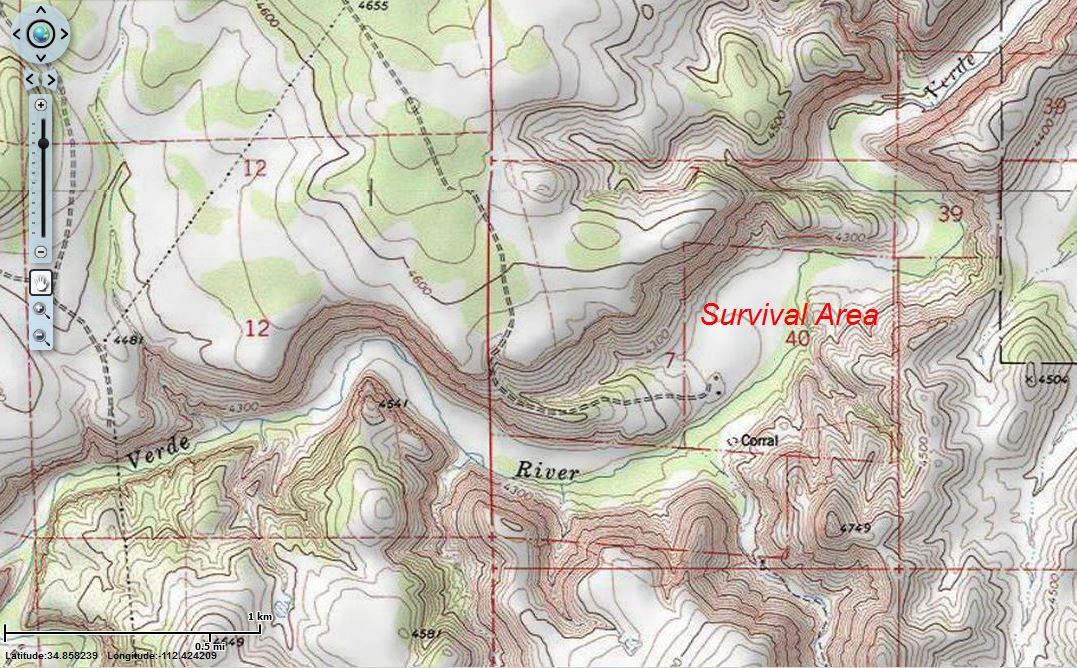Activity Plan:
October 17th (Saturday), meet at St. Bernadette Catholic Church at 5:45am to depart at 6:00am
- Arrive at Trailhead at 8:30am, hike to Survival Area (.75 mile from Trailhead)
- Scouts (organized by Patrol) then use rest of day to practice/demonstrate their survival and outdoor skills: Shelter Building, Food Gathering, Water Purification and Fire Building
October 18th (Sunday), wake up early
- Adult Score Keepers meet with Patrols and “Score” the results of activities
- Scouts practice Leave No Trace Principles and tear down and disseminate shelters and fire pits created.
- Troop meeting to share stories and interesting events
- Announcement of Patrol Score Cards
- Pack up and return to Trailhead and return to St. Bernadette Catholic Church (expected arrival at 12:00pm)
EQUIPMENT TO BRING: The Scouts should use this Outing to update and prepare a quality Daypack with the Scout 10 Essentials (refer to the Scout Handbook) and other items that are useful. Be mindful that you do not want your pack to be too heavy as to hinder your activities and hiking ability. In addition, Scouts should bring a sleeping bag with them, they do not need to use it during the survival activity, in case they “tap out”.
COMPETITION SCORING: The Patrols will be scored on the following items:
- Shelter Built and utilized
- Rationing, use and procurement of nutrition (food)
- Responsible construction and maintenance of fire
- Water Purification
- Percentage of Scouts that “survived” (did not “tap out”)
- Use of resources and having/utilizing a true daypack (one they will carry again in the future)
- Patrol Operations, how their patrol worked as a team and leadership skills demonstrated
SCENARIO: The Scout Patrol is out on a day hike, when for whatever reason they are forced to stay in an area overnight with just the equipment and supplies they carry in their daypack. A good Scout would have a map of the area they are hiking so they would be able to locate a suitable spot to take shelter, which in the interest of time, we have determined to be:

This location has a small stream (Verde River) that runs by it, for water and may have fish to catch (if Scouts have a valid AZ Fishing License), the area has larger trees to provide both shade and shelter from the elements. There is plenty of dead wood available for fire and shelter building.
RULES AND MISCELLANEOUS:
- Adults will set up an Adult Camp, that will monitor the Scouts from a distance. Any Scout that wants to “tap out” of the survival game can come to the Adult Camp and stay the night in a tent with other Scouts, use the Adult campfire and be provided with food and water.
- Each Patrol will be issued a whistle, periodically the Adults will signal with “1 blast” and each Patrol should respond “1 blast” indicating that all is okay. If at any time a Patrol has an emergency, they should do “3 blasts” on the whistle (SOS whistle signal) and the Adults will respond quickly.
- The Patrols can build small fires, if they a have Scout that has their BSA Fireman Chit, if needed the Troop can/will providing a training for the Fireman Chit prior to the outing (Scouts let your Patrol Leader know).
- Scouts are allowed to fish in the River, as long as they a valid AZ Fishing License, not everyone needs a license, just 1 or 2 Scouts per Patrol. Patrols can share any fish caught. There are also crayfish/crawdads in the River.
- For the safety of the Scouts, they are to stay within the designated area, North bank of Verde River, East of Tree with Exposed Roots along River, West of Pipe Rail Fence along River. The Northern Boundary is the Hill. It is a large area and well within reach of the Adult Leaders.
- Scouts should study their Plant Identifications and be prepared to identify Poison Ivy and Poison Oak so they can avoid it.
- Scouts’ Daypacks should have sufficient nutrition to last 24 hours. It should be items typical to a daypack, for example beef jerky, granola bars, protein bars, etc. These items are not heavy have a extended shelf life and are easily transported. Scouts need to be mindful of other Scouts that may have food allergies as not to share to contaminate shared food resources, if any.
- The purpose of this activity is to educate the Scouts on what is a sufficient daypack, how to purify water, prepare/maintain a small fire and overall how to be resourceful in the outdoors to survive for 1 night or more (if ever needed).